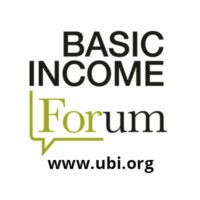What Would a 2022 Beveridge Report Say? Panel discussion

The 1942 report Social Insurance and Allied Services (known popularly as the Beveridge Report) transformed the lived of millions of people and its impact is still felt today.
William Beveridge wanted to find solutions to the five giants of idleness, ignorance, disease, squalor and want. Some of his findings were not popular at the time with some politicians but his ‘cradle to the grave’ social programme – which called for a free national health service, amongst other things – struck a chord with the public. The report was a huge bestseller and would influence Clement Atlee’s post-war Labour Government to implement these ideas.
The report helped solve some of the problems identified, but work continues to be needed on these and more. And what about problems – new giants – that have arrived more recently? What would a new Beveridge Report say today? How would it continue to address the five giants as well as deal with the problems the welfare state faces? How would it solve the social care crisis, or ensure that work is meaningful and secure and not precarious? Would it propose universal basic income and universal basic services? Would it deal with climate change?
Gavin Kelly (Resolution Foundation) hosts and is joined by Stewart Lansley (writer on poverty, wealth and inequality), Graeme Cooke (Joseph Rowntree Foundation) and Jane Millar (Institute for Policy Research, University of Bath).
This is a special event before ‘Back to Basics: Income for Everyone?’ (Wed 12 October) – the third conference from the University of Bath Institute for Policy Research (IPR) and Bristol Ideas, supported by the Basic Income Forum.
Watch the recording of the event
Speakers
Graeme Cooke is Director of Evidence and Policy, Joseph Rowntree Foundation. He leads the evidence, economics, and policy teams to achieve a deeper understanding of the causes and nature of poverty across the four nations of the UK and develop bold, creative, and credible policy solutions. Previously, he was Director of Inclusive Growth at the London Borough of Barking and Dagenham, where he had responsibility for regeneration, housing, planning, economic development, employment, energy, and environment. Other roles have included Head of Strategy at the London Borough of Islington, Director of Research at the Institute for Public Policy Research and Expert Adviser to the Secretary of State for Work and Pensions.
Gavin Kelly is Chair of the Resolution Foundation and Chair of the Living Wage Commission. He was Chief Executive of Resolution Foundation (2010-15) and before this worked in No 10 Downing Street as Deputy Chief of Staff. He is a trustee of The Orwell Prize, Political Quarterly and Prospect magazine.
Stewart Lansley is a visiting fellow at the School of Policy Studies, University of Bristol. He has written on inequality, wealth and poverty for academic journals and newspapers. He is the author/co-author of a number of books including The Richer, The Poorer (2021), Breadline Britain (2015), The Cost of Inequality (2011) and Top Man (2007). He has also written on the transformative potential of a guaranteed income floor. He is a Council Member of the Progressive Economy Forum, a Fellow of the Academy of Social Sciences, and a member of the National Advisory Panel of CLASS.
Jane Millar is Professor Emeritus of Social Policy at the University of Bath and a leading scholar on the design, implementation and impact of social policy, particularly family policy, social security and employment policy, with particular reference to gender and changing family patterns. She was elected as a Fellow of the Academy of Social Sciences (2000) and as a Fellow of the British Academy (2014); a Special Adviser to the House of Commons Select Committee for Work and Pensions (2004 and 2007) and to the House of Lords Economic Affairs Committee (2020); Chair of the Economic and Social Research Council (ESRC) Grants Assessment Panel C (2016-2020) and Chair of the Social Policy Association (SPA) (2016-2019).
Booking Information
This is an online event on Crowdcast. Please note that Crowdcast works best in Chrome.
Booking a ticket for our Crowdcast event
Click the Book Ticket link to go to Crowdcast to register. Click the ‘Save my spot’ button to register. You will be prompted to enter your email address or social media login (Facebook, Twitter or Google). An email will be sent to confirm your registration, along with the option to add the event to your calendar.
Joining our Crowdcast event
Once you register you will have instant access to the event’s Crowdcast page, including the polls, chat, and Q&A. To return to the event page at any time, simply click the link in your confirmation or reminder email. The event will start automatically on its event page at the time advertised, and all you have to do is sit back and relax. You can download this guide from Crowdcast for more information.
Accessibility
Live captions
You can use Chrome’s accessibility settings to view live captions for Crowdcast events. This page explains how to enable them.

